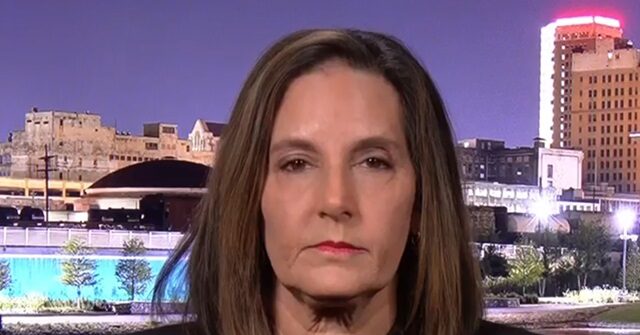On a recent episode of MSNBC’s “The Beat,” contributor Joyce Vance articulated a serious concern regarding President-elect Donald Trump’s remarks about potentially pardoning individuals involved in the January 6 insurrection. Vance argued that such statements serve not merely as a message of support for those defendants but also signal to Trump’s broader base that they may resort to violence and engage in criminal activities with the expectation of protection by Trump. This discussion raises questions about the normalization of violence in political discourse and the implications of a leader encouraging unlawful behavior among supporters.
Political commentator Bill Kristol echoed Vance’s sentiments, emphasizing the alarming nature of the current political climate. He pointed to figures like JD Vance, who has made it clear he would not have upheld democratic principles during the electoral process, highlighting a dangerous trend among some Republican leaders who undermined the democratic process on January 6. Kristol mentioned the troubling trajectory of appointments within the Republican Party, including candidates like Kash Patel, who have associations with efforts to subvert the election. This context illustrates a party increasingly aligned with actions that could threaten democratic integrity.
The aftermath of the events surrounding the Capitol siege continues to unfold, revealing a presidency aligned with those who sought to overturn a legitimate election. Kristol lamented the shift from a national consensus about respecting electoral outcomes to a situation where factions within the government support and even condone insurrection. The dissonance between the ideals of democracy and the behaviors of some political leaders presents a stark contrast to historical norms regarding the peaceful transfer of power.
Moreover, both Vance and Kristol’s observations point toward an alarming moral decay within the Republican Party, where loyalty to a leader supersedes the commitment to democratic values. Vance highlighted that Trump’s messaging is not just about affirming the January 6 defendants but about a broader call to action for his followers, which implies that supporting him may necessitate illegal or violent acts. This perspective illustrates the precarious balance between political loyalty and ethical governance, raising the question of how followers interpret and act upon such incendiary messages.
As Trump continues to navigate the political landscape leading up to an anticipated run for president, the implications of his rhetoric resonate deeply with those looking to rally behind him. Vance’s assertions suggest a troubling precedent where the incendiary language of a political figure potentially encourages followers not only to support a candidacy but to embrace extremes in their methods. This fosters an environment where political conflict could escalate into violence, challenging the foundations of law and order in society.
In conclusion, the discussion surrounding Trump’s comments and the reactions from political figures like Vance and Kristol captures the deepening rift in American politics. The potential ramifications of encouraging violence among supporters indicate a shift towards a more radical political landscape. These developments not only threaten the rule of law but could also undermine the very fabric of democracy in the United States, prompting a critical examination of the responsibilities of political leaders and the need for a recommitment to democratic principles in the face of extremism.

